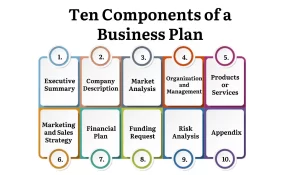Insurance can sometimes feel complicated, but AOP insurance doesn’t have to be! It’s a straightforward concept that we’ll delve into today. If you’re wondering what AOP stands for, it’s short for “All Other Perils.” But don’t worry if that sounds confusing. By the end of this article, you’ll clearly understand what AOP insurance is, how it works, and why it’s important.
What Is AOP Insurance?
Perils are events that cause damage to your property. Common perils include fire, lightning, and theft. But sometimes, other unexpected events can cause damage, called “all other perils.” AOP insurance helps to cover the damage caused by these less common perils.

- Certified pre-approval Process
- Online Application Available 24/7
4.3
editorial team. We score based on factors
that are helpful for consumers, such as
how it affects credit scores, the rates and
fees charged, the customer experience,
and responsible lending practices.
Why Is AOP Insurance Important?
Think of AOP insurance as an extra layer of comprehensive protection. While your standard insurance policy covers the most common risks, All Other Perils Insurance catches unexpected events that slip through the cracks. It’s important because life is unpredictable, and having All Other Perils insurance means you’re covered for a wider range of possible events, giving you a sense of security and peace of mind.
Related: Is Car Repair Insurance Worth It? Expert Guide
What Does AOP Insurance Cover?
AOP insurance typically covers many events not specifically listed in your standard insurance policy. Some examples might include:
- Vandalism: If someone intentionally damages your property, like breaking windows or spray-painting walls.
- Falling Objects: If a tree falls on your house during a storm, All Other Perils insurance can help cover the repairs.
- Water Damage could include things like a burst pipe or a sudden flood.
- Animal Damage: If a wild animal gets into your house and causes damage, All Other Perils insurance can help with the repairs.
Related: Lively: The Best Insurance Company in the USA 2024
What AOP Insurance Doesn’t Cover?
While AOP insurance covers many unexpected events, it doesn’t cover everything. For example:
- Wear and Tear: Damage that happens over time because of regular use isn’t covered.
- Intentional Damage: If you purposely cause damage to your property, All Other Perils insurance won’t cover it.
- Certain Natural Disasters: Some natural disasters, like earthquakes, might require separate insurance.
Related: Best Car Insurance for Teens of 2024
How Does AOP Insurance Work?
When you buy an insurance policy, you agree with the insurance company. You pay them a certain amount, called a premium, and they decide to cover certain risks. If something bad happens and your policy covers it, the insurance company will pay for the damage.
With AOP insurance, you’re adding extra protection to your policy. If an unexpected event happens and causes damage, you can make a claim, and the insurance company will help cover the cost of repairs or replacements.
Who Needs AOP Insurance?
AOP insurance is a good idea for anyone wanting extra property protection. This could include:
- Homeowners: If you own a home, All Other Perils insurance can help protect you from unexpected damage not covered by your regular homeowner’s insurance.
- Renters: Even if you don’t own your home, AOP insurance can still protect your belongings inside the house.
- Business Owners: If you own a business, All Other Perils insurance can help protect your business property from unexpected events.

- Certified pre-approval Process
- Online Application Available 24/7
4.3
editorial team. We score based on factors
that are helpful for consumers, such as
how it affects credit scores, the rates and
fees charged, the customer experience,
and responsible lending practices.
How Much Does AOP Insurance Cost?
The cost of AOP insurance can vary depending on several factors, including:
- The Value of Your Property: If your property is worth more, your insurance might cost more because there’s more to protect.
- Your Location: If you live in an area more prone to certain risks, like floods or wildfires, your insurance might cost more.
- Your Deductible: A deductible is the amount you agree to pay out of pocket before the insurance kicks in. If you choose a higher deductible, your premium might be lower.

How to Choose the Right AOP Insurance
Choosing the right All Other Perils insurance is important, and there are a few things you should consider:
- Assess Your Risks: Consider the risks in your area. Do you live in a place that gets a lot of storms? Are there many trees around your house that could fall? Understanding your risks can help you choose the right coverage.
- Compare Policies: Not all AOP insurance policies are the same. It’s a good idea to compare different policies and see what each covers. Look for a policy that offers the protection you need at a price you can afford.
- Talk to an Insurance Agent: If you need clarification on which policy is right, talking to an insurance agent can help. They can answer your questions and help you find the right coverage.
Common Myths About AOP Insurance
There are a few common myths about All Other Perils insurance that we should clear up:
- Myth 1: “All Other Perils insurance covers everything.”
- Reality: While All Other Perils insurance covers many unexpected events, it doesn’t cover everything. It’s important to read your policy carefully and understand what’s covered and what’s not.
- Myth 2: “I don’t need All Other Perils insurance because I already have regular insurance.”
- Reality: Regular insurance covers common risks, but All Other Perils insurance covers unexpected events that aren’t included in your regular policy. It’s an extra layer of protection.
- Myth 3: “AOP insurance is too expensive.”
- Reality: The cost of All Other Perils insurance varies depending on your situation. For many, the peace of mind with extra protection is worth the price.
Real-Life Examples of AOP Insurance in Action
Let’s look at some real-life examples to see how AOP insurance can help:
- Example 1: Jane’s Story
- Jane lives in a quiet neighborhood with many trees. One night, a large tree branch fell on her roof during a storm, causing significant damage. Luckily, Jane has AOP insurance, which covers repairing her roof.
- Example 2: Mike’s Story
- Mike is a small business owner. One day, a group of vandals breaks into his store and causes extensive damage. Mike’s AOP insurance helps cover the cost of repairs so he can get back to business quickly.
The Future of AOP Insurance
As the world changes, so do the risks we face. That’s why AOP insurance is likely to become even more important. New risks, like cyberattacks or climate change, could lead to new perils. AOP insurance will continue to evolve to help protect people from these emerging risks.
AOP insurance might initially sound complicated, but it’s about protecting yourself from the unexpected. By adding AOP insurance to your regular policy, you’re making sure you’re covered for a wider range of possible events. Whether you’re a homeowner, renter, or business owner, AOP insurance can give you peace of mind, knowing you’re prepared for whatever life throws your way.
Remember, the key to choosing the right AOP insurance is understanding your risks, comparing policies, and talking to an insurance agent if you need help. With the right coverage, you can rest easy knowing you’re protected from all other perils.
Frequently Asked Questions
What does aOP stand for in insurance?
So, what exactly does AOP mean? It simply means “All Other Perils”. This is an “insurance-y” term, but it refers to the things covered by the insurance policy other than the risks with a deductible. The most typical deductibles are for hurricanes and sinkholes.
What does AOP mean in home insurance?
The All Other Peril Deductible (AOP) applies to all other covered losses, such as fire, theft, or lightning strikes. Unlike hurricane deductibles, AOP Deductibles are usually based on a fixed financial amount.
What are AOP benefits?
AOP facilitates the uniform implementation of alterations and changes throughout the entire application, allowing for the management of cross-cutting concerns such as transactions and security. Readability. Isolating and describing non-functional needs increases the readability of essential business logic.
What is the AOP operating plan?
An Annual Operating Plan, or AOP, serves as a strategic plan for your organization, converting its goals into tangible activities. It establishes detailed operational objectives for the year, including the monthly milestones required.

- Certified pre-approval Process
- Online Application Available 24/7
4.3
editorial team. We score based on factors
that are helpful for consumers, such as
how it affects credit scores, the rates and
fees charged, the customer experience,
and responsible lending practices.






